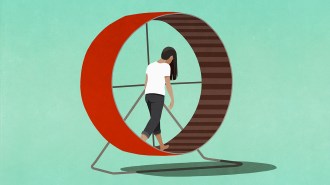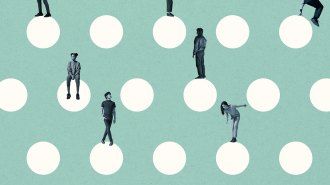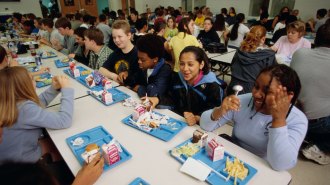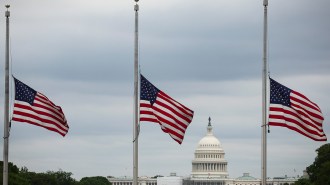
Sujata Gupta is the social sciences writer for Science News. She was a 2017-18 Knight Science Journalism fellow at MIT. Her work has appeared in The New Yorker, Nature, Discover, NPR, Scientific American, and others. Sujata got her start in journalism at a daily newspaper in Central New York, where she covered education and small town politics. She has also worked as a National Park Ranger, completing stints at parks in Hawaii, California and Maine, and taught English in Nagano, Japan.

Trustworthy journalism comes at a price.
Scientists and journalists share a core belief in questioning, observing and verifying to reach the truth. Science News reports on crucial research and discovery across science disciplines. We need your financial support to make it happen – every contribution makes a difference.
All Stories by Sujata Gupta
-
 Science & Society
Science & SocietyWe prioritize family over self, and that has real-world implications
Two studies show how family bonds improve personal and mental health, suggesting policy makers should shift away from individualistic mindsets.
-
 Science & Society
Science & SocietyPandemic languishing is a thing. But is it a privilege?
Positive psychologists contend that people can flourish if they try hard enough. But this pinnacle of well-being might not be so fully in our control.
-
 Science & Society
Science & SocietyWhy fuzzy definitions are a problem in the social sciences
Social sciences research is plagued by murky definitions and measurements. Here’s why that matters.
-
 Psychology
PsychologyThe pandemic shows us how crises derail young adults’ lives for decades
Age matters for when we experience calamities, such as pandemics. Young adults are especially vulnerable to getting thrown off their life course.
-
 Psychology
PsychologyThe pandemic may be stunting young adults’ personality development
People typically become less neurotic and more agreeable with age. The COVID-19 pandemic may have reversed those trends in adults younger than 30.
-
 Science & Society
Science & SocietyLooking for a job? Lean more on weak ties than strong relationships
A 50-year-old social science theory gets put to the test in a new study using data on 20 million LinkedIn users.
-
 Health & Medicine
Health & MedicineHow living in a pandemic distorts our sense of time
The pandemic has distorted people’s perception of time. That could have implications for collective well-being.
-
 Neuroscience
NeuroscienceSleep deprivation may make people less generous
Helping each other is inherently human. Yet new research shows that sleep deprivation may dampen people’s desire to donate money.
-
 Science & Society
Science & SocietyFriendships with rich people may help lift children out of poverty
For poor children, forming connections to richer peers is linked to greater earnings later in life, researchers say.
-
 Psychology
PsychologyThe idea that many people grow following trauma may be a myth
Studies of posttraumatic growth are fundamentally flawed and can contribute to toxic cultural narratives, researchers say.
-
 Science & Society
Science & SocietyHow having health care workers handle nonviolent police calls may impact crime
A new study analyzes a Denver program that sends a mental health professional and EMT to handle trespassing and other minor crime offenses.
-
 Science & Society
Science & SocietyCOVID-19 has killed a million Americans. Our minds can’t comprehend that number
We intuitively compare large, approximate quantities but cannot grasp such a big, abstract number as a million U.S. COVID-19 deaths.